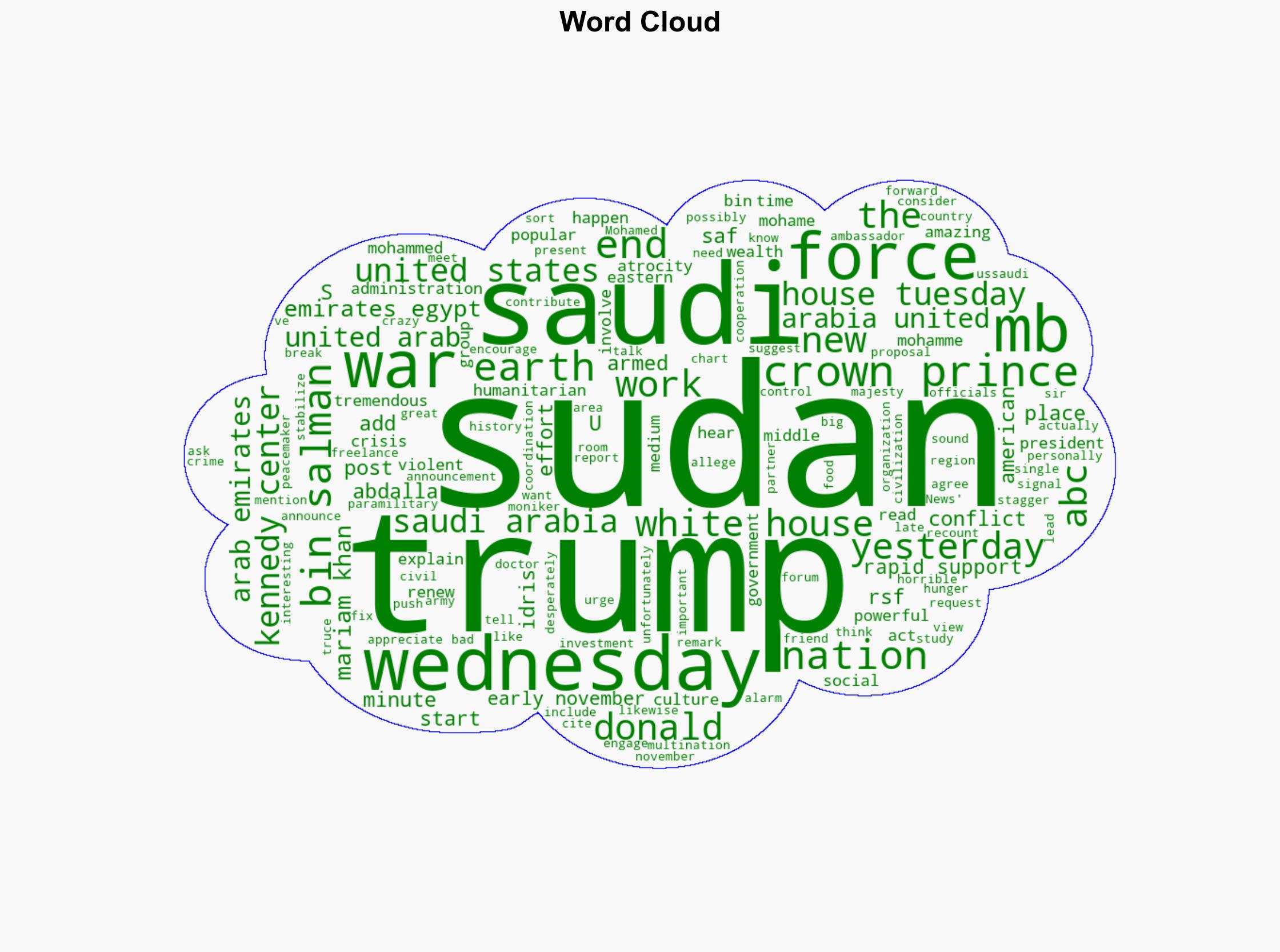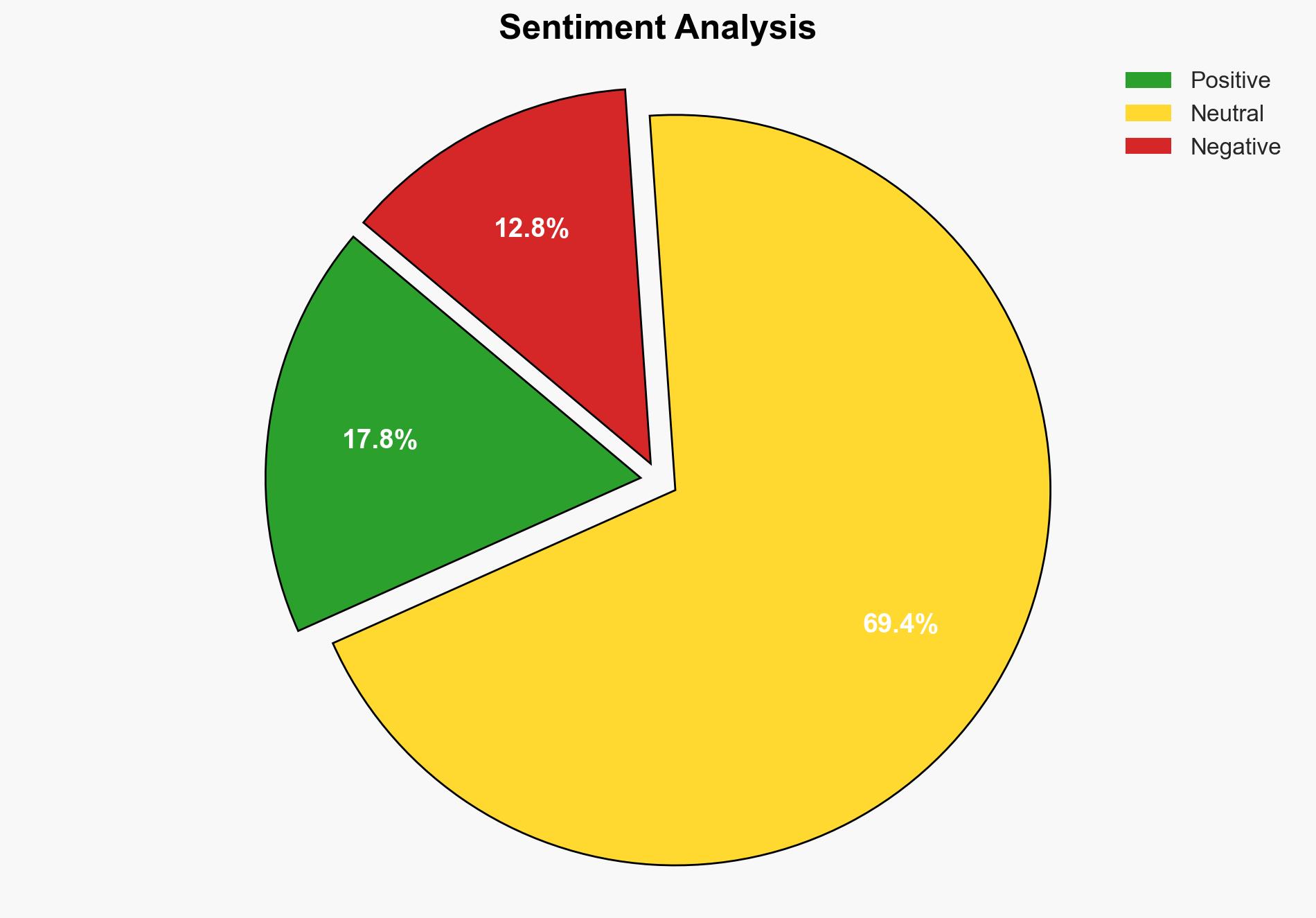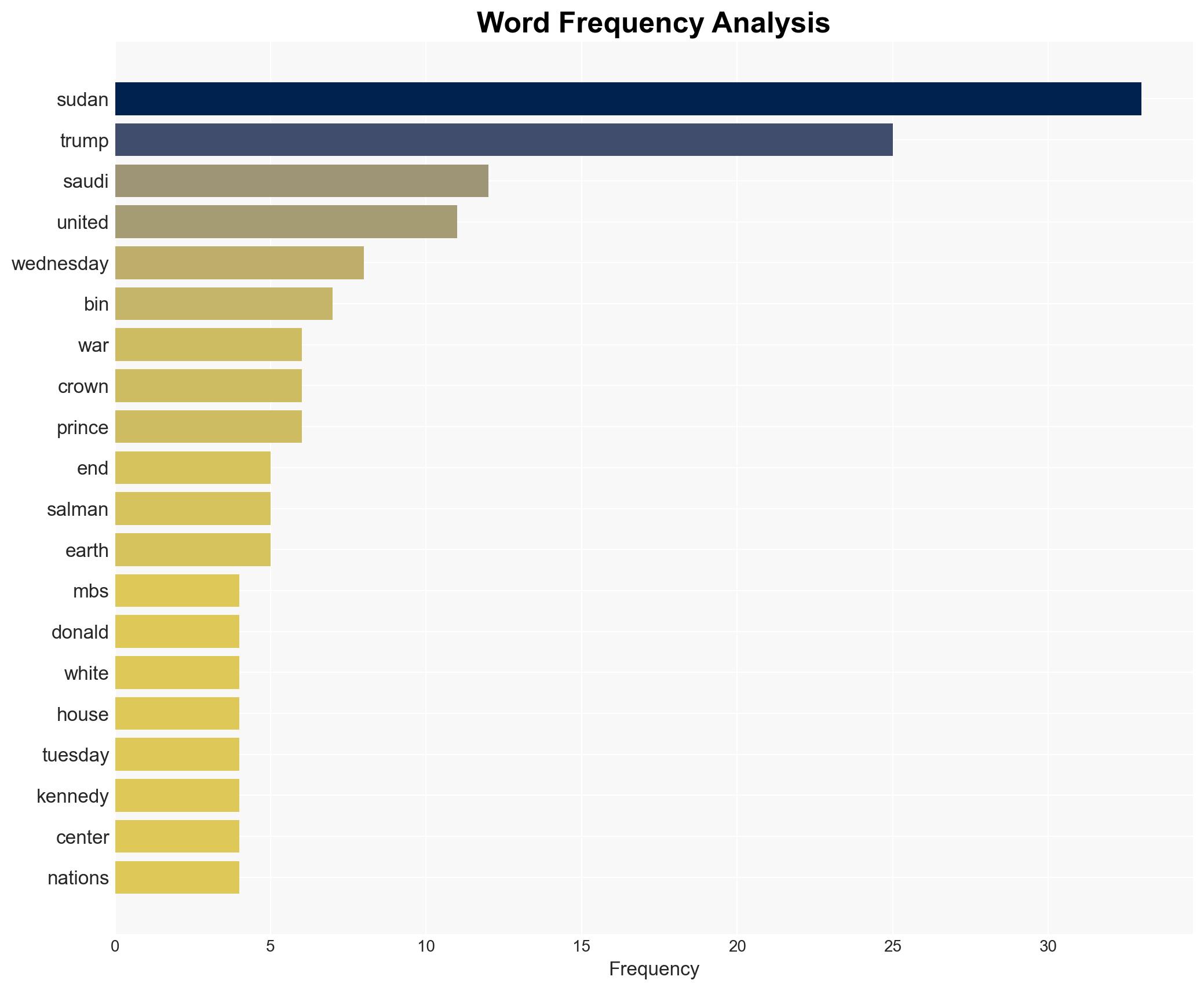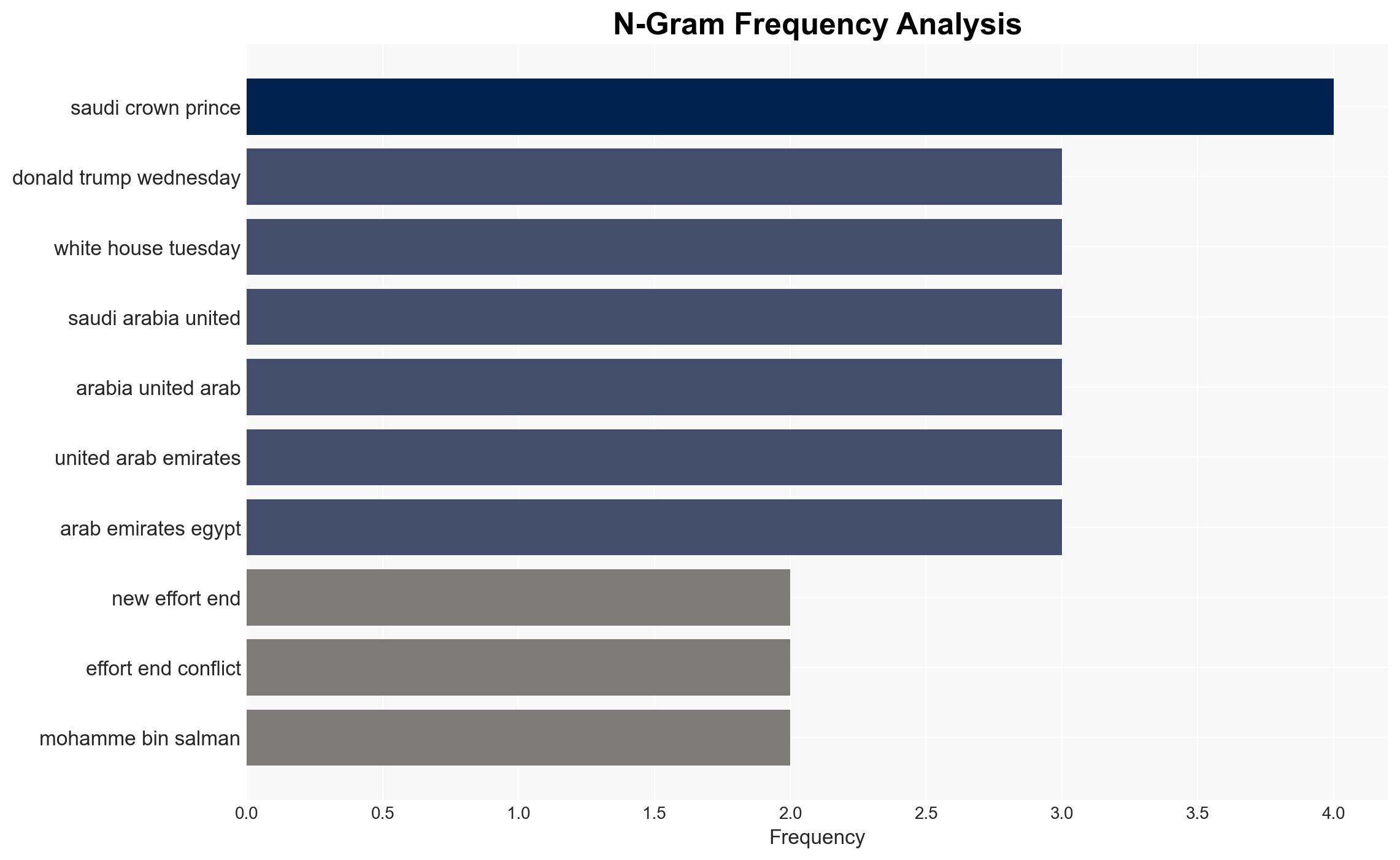Trump announces US making new effort to end war in Sudan citing MBS request – ABC News
Published on: 2025-11-20
AI-powered OSINT brief from verified open sources. Automated NLP signal extraction with human verification. See our Methodology and Why WorldWideWatchers.
Intelligence Report:
1. BLUF (Bottom Line Up Front)
The most supported hypothesis is that the U.S. is engaging in a renewed diplomatic effort to end the conflict in Sudan, primarily influenced by strategic interests in the region and the request of Saudi Crown Prince Mohammed bin Salman (MBS). This move is likely aimed at stabilizing a geopolitically significant area and strengthening U.S.-Saudi relations. Confidence Level: Moderate. Recommended action includes enhancing diplomatic channels and leveraging regional partnerships to facilitate peace talks.
2. Competing Hypotheses
Hypothesis 1: The U.S. is genuinely committed to ending the conflict in Sudan due to humanitarian concerns and strategic interests, with MBS’s request serving as a catalyst.
Hypothesis 2: The announcement is primarily a diplomatic gesture to strengthen U.S.-Saudi relations and does not indicate a substantial change in U.S. policy or commitment to resolving the Sudanese conflict.
Hypothesis 1 is more likely given the strategic importance of Sudan in the region and the potential benefits of stabilizing the area, which aligns with U.S. interests in countering extremism and securing regional stability.
3. Key Assumptions and Red Flags
Assumptions: The U.S. has the capacity and willingness to engage in effective diplomacy in Sudan. MBS’s request is genuine and not a strategic maneuver to shift responsibility.
Red Flags: Lack of concrete action following the announcement could indicate a lack of genuine commitment. Potential deception by regional actors aiming to manipulate U.S. involvement for their own benefit.
4. Implications and Strategic Risks
Failure to achieve a resolution could exacerbate the humanitarian crisis and lead to further destabilization, potentially increasing refugee flows and regional instability. Successful U.S. involvement could enhance its influence in the region but risks entanglement in a protracted conflict if not managed carefully.
5. Recommendations and Outlook
- Engage with regional partners, including the African Union and neighboring countries, to build a coalition supporting peace efforts.
- Monitor the situation closely for signs of escalation or manipulation by involved parties.
- Best Scenario: Successful mediation leads to a ceasefire and eventual peace agreement.
- Worst Scenario: U.S. involvement is perceived as biased, leading to increased tensions and anti-American sentiment.
- Most-likely Scenario: Incremental progress with periodic setbacks, requiring sustained diplomatic efforts.
6. Key Individuals and Entities
Donald Trump, Mohammed bin Salman, Mohamed Abdalla Idris, Sudan Armed Forces (SAF), Rapid Support Forces (RSF).
7. Thematic Tags
National Security Threats, Diplomatic Relations, Humanitarian Crisis, Regional Stability
Structured Analytic Techniques Applied
- Cognitive Bias Stress Test: Expose and correct potential biases in assessments through red-teaming and structured challenge.
- Bayesian Scenario Modeling: Use probabilistic forecasting for conflict trajectories or escalation likelihood.
- Network Influence Mapping: Map relationships between state and non-state actors for impact estimation.
Explore more:
National Security Threats Briefs ·
Daily Summary ·
Support us





